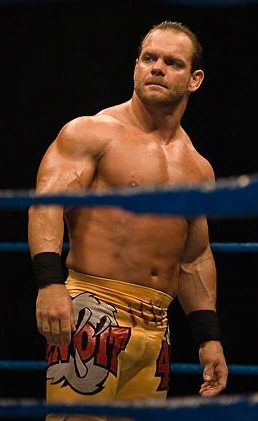
Introduction
The name Chris Benoit evokes a myriad of emotions within the realm of professional wrestling. Once celebrated as a talented and dedicated performer, Benoit’s legacy was irrevocably marred by tragic events surrounding his death in 2007. Understanding Benoit’s impact on wrestling and the circumstances that unfolded is essential for fans and historians alike, as it highlights the complexities of fame, mental health, and the consequences of violence.
Career Highlights
Chris Benoit, born on May 21, 1967, in Montreal, Quebec, Canada, pursued professional wrestling from a young age, quickly rising through the ranks. He gained prominence in various wrestling organizations including World Championship Wrestling (WCW) and World Wrestling Entertainment (WWE). Benoit was celebrated for his technical prowess, as well as his intense and passionate performances. He achieved significant milestones, notably winning the prestigious World Heavyweight Championship at WrestleMania XX in March 2004. This victory, where he officially reached the pinnacle of his career, is often remembered for its emotional resonance and the iconic moment shared with fellow wrestler Eddie Guerrero.
The Tragedy of 2007
However, just a few years later, Benoit’s legacy took a tragic turn. In June 2007, Benoit, along with his wife Nancy and son Daniel, was found dead in their home in Fayette County, Georgia. The investigation revealed that Benoit had killed his family before taking his own life. The bizarre circumstances surrounding these events shocked the wrestling community and raised serious questions about Benoit’s mental health, particularly regarding chronic traumatic encephalopathy (CTE), a degenerative brain disease linked to repeated head injuries.
Impact on Professional Wrestling
The aftermath of the Benoit tragedy altered the perception of wrestlers and the industry at large. It prompted WWE and other organizations to re-evaluate their policies regarding wellness, substance abuse, and mental health for performers. The incident highlighted the often-overlooked issues within professional wrestling, including the pressure faced by athletes, the culture surrounding them, and the importance of mental health resources. Benoit’s name has since become synonymous with the darker aspects of wrestling, leading to cancellations of tributes and discussions about the portrayal of talent within the industry.
Conclusion
Chris Benoit’s story is a cautionary tale that transcends the wrestling ring. It serves as a stark reminder of the potential dangers associated with fame, mental health struggles, and the importance of addressing these issues head-on. While the wrestling community continues to evolve and learn from the past, Benoit’s legacy remains a topic of complex discussions. For fans and newcomers to wrestling, acknowledging the full spectrum of Benoit’s life – both his impressive achievements and tragic downfall – is essential for a comprehensive understanding of the industry’s narrative.
You may also like

The Exciting Location of Super Bowl 2024: What to Expect

Timberwolves vs Suns: Game Highlights and Analysis

The Legacy and Future of FC Bayern Munich
SEARCH
LAST NEWS
- Remembering Wendy Richard: The Promise to Co-Star Natalie Cassidy
- How Did Anglian Water Achieve an ‘Essentials’ Rating for Mental Health Accessibility?
- Shai Hope Leads West Indies in T20 World Cup Clash Against South Africa
- What We Know About Weston McKennie: Future at Juventus and Past at Leeds
- What We Know About the Upcoming Live Nation Antitrust Trial